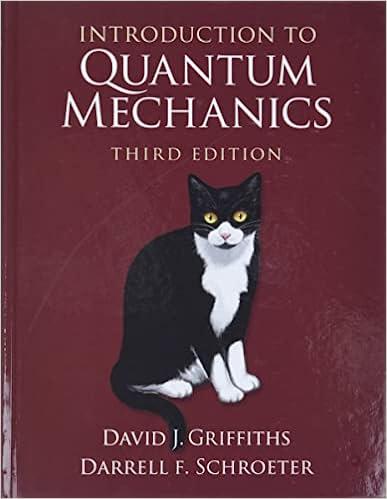Solve Equation 11.17 for the case of a time-independent perturbation, assuming that ca (0) = 1 and
Question:
Solve Equation 11.17 for the case of a time-independent perturbation, assuming that ca (0) = 1 and cb(0) = 0. Check that |ca(t)|2 + |cb(t)|2 = 1. Comment: Ostensibly, this system oscillates between “pure Ψa ” and “some Ψb.” Doesn’t this contradict my general assertion that no transitions occur for time-independent perturbations? No, but the reason is rather subtle: In this case Ψa and Ψb are not, and never were, eigenstates of the Hamiltonian—a measurement of the energy never yields Ea or Eb. In time-dependent perturbation theory we typically contemplate turning on the perturbation for a while, and then turning it off again, in order to examine the system. At the beginning, and at the end, Ψa and Ψb are eigenstates of the exact Hamiltonian, and only in this context does it make sense to say that the system underwent a transition from one to the other. For the present problem, then, assume that the perturbation was turned on at time t = 0, and off again at time T—this doesn’t affect the calculations, but it allows for a more sensible interpretation of the result.

Step by Step Answer:

Introduction To Quantum Mechanics
ISBN: 9781107189638
3rd Edition
Authors: David J. Griffiths, Darrell F. Schroeter





